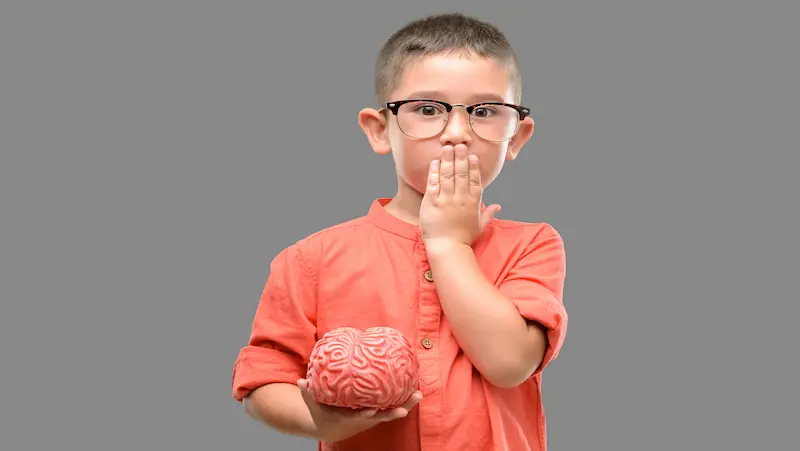Kids in today’s fast-paced society encounter a wide range of obstacles that can have serious consequences for their health, happiness, and growth. Mindfulness, the skill of paying attention in the present moment while maintaining an accepting attitude towards one’s thoughts and feelings, has been shown to have positive effects on the health of kids and academic performance. Using motivational quotations is an effective strategy for teaching youngsters to practise mindfulness. This blog post will introduce the concept of mindfulness and present a selection of quotes with the intention of inspiring young readers.
Table of contents
Understanding Emotional Intelligence in Kids

Teaching kids about emotions is a vital aspect of their development, helping them recognize, understand, and manage their feelings in healthy and constructive ways. When it comes to understanding emotional intelligence in kids, there are several key points to consider:
Self-Awareness: Emotional intelligence begins with self-awareness, which involves recognizing and understanding one’s own emotions. Kids who possess self-awareness can identify their feelings, understand the reasons behind them, and express them appropriately.
Self-Regulation: Developing self-regulation is crucial for children to manage their emotions effectively. It involves the ability to control impulses, manage stress, and regulate emotional reactions. Kids with strong self-regulation skills can handle challenging situations with composure and make thoughtful decisions.
Empathy: Empathy is the ability to understand and share the feelings of others. When children have empathy, they can recognize and respond to the emotions of their peers. This skill fosters kindness, compassion, and the ability to form positive relationships.
Social Skills: Emotional intelligence in kids also includes the development of social skills. These skills involve effective communication, active listening, cooperation, and conflict resolution. Children with strong social skills can navigate social situations with ease and build healthy relationships.
Motivation: Motivation plays a crucial role in emotional intelligence. Kids who are intrinsically motivated are driven by their own desires and interests rather than external rewards. They have a growth mindset, embrace challenges, and persist in the face of setbacks.
Impact on Social Interactions: Emotional intelligence significantly impacts how children interact with others. Kids who are emotionally intelligent are more likely to have positive and healthy relationships. They can understand and respond appropriately to the emotions and needs of others, leading to better communication and cooperation.
Academic Success: Emotional intelligence also correlates with academic success. Children with high emotional intelligence are better equipped to manage stress, handle setbacks, and maintain focus. They can effectively communicate with teachers and classmates, collaborate in group projects, and make sound decisions related to their studies.
Overall Well-being: Emotional intelligence contributes to the overall well-being of children. It helps them understand and regulate their emotions, leading to reduced stress and improved mental health. Children with strong emotional intelligence are more resilient, adaptable, and capable of coping with challenges.
For better understanding about computer games for kids. Click here!
Benefits of Developing Emotional Intelligence in Kids

Developing emotional intelligence in kids offers a wide range of benefits. Here are some key points to consider:
Improved Relationships: Kids who have developed their emotional intelligence skills are more likely to be empathetic and understanding adults. They are able to articulate and understand their own feelings as well as those of others. Relationships with loved ones, friends, and peers all benefit from this ability to connect emotionally.
Enhanced Decision-Making: Kids that are emotionally intelligent are more likely to make good choices. Kids can learn to make decisions that are good for them and those around them if they take into account their own feelings as well as the feelings of those they affect. They are less likely to be motivated merely by impulse and more prone to think about the long-term effects of their activities. Child development involves nurturing skills like decision-making, where understanding and managing emotions play a crucial role in making thoughtful and balanced choices.
Increased Empathy and Compassion: Developing a kid’s emotional intelligence helps them become more empathetic and caring people. Kids learn to empathise with and value the experiences of others, fostering empathy, compassion, and a strong sense of community. As a result, they are better able to empathise with others and have more satisfying social relationships. Teaching kids compassion involves cultivating empathy, kindness, and a genuine concern for the well-being of others, nurturing their ability to connect and contribute positively to the world around them.
Strengthened Emotional Resilience: Kids that are high in emotional intelligence are better able to deal with difficult situations. Kids who score higher on tests of emotional intelligence are better able to deal with difficult situations. They know how to keep their cool, recover quickly from setbacks, and keep a glass half full attitude no matter what life throws at them.
Improved Communication Skills: Kids who are emotionally intelligent are more able to express themselves. Better and more genuine communication is fostered as they learn to articulate their innermost thoughts, emotions, and wants. Kids who have mastered this competency are better able to negotiate differences, set limits, and carry on meaningful dialogues. Children’s language development is intricately linked to their communication skills, as they learn to express thoughts, engage in conversations, and understand the nuances of effective interaction with others.
Strategies for Promoting Emotional Intelligence

In children’s education, nurturing emotional intelligence is as important as academic learning, as it equips them with the skills to recognize, understand, and manage their emotions, fostering healthy relationships and overall well-being. To promote emotional intelligence in children, there are several strategies that parents and caregivers can employ:
Building Self-Awareness: Help kids develop a healthy sense of self-awareness by talking to them about their feelings. Help them communicate their emotions through journaling or art.
Developing Self-Regulation: Let kids learn to control their feelings by instructing them in strategies like deep breathing or giving them time out to collect themselves. Help them learn to control their feelings by teaching them mindfulness and relaxation practices.
Fostering Empathy: Cultivate empathy by encouraging children to consider others’ feelings and perspectives. Model empathetic behaviour and engage in discussions about different emotions.
Enhancing Social Skills: Facilitate positive social interactions by providing opportunities for kids to practise cooperation, active listening, and problem-solving. Role-playing and group activities can strengthen their social skills.
Encouraging Motivation: Motivate kids by teaching them the value of hard work and sticking with a task until they succeed. Assist them in developing their own internal drive by having them establish attainable objectives and enjoying the fruits of their labour.
Nurturing Emotional Intelligence at Home and School

Parents and teachers must work together to foster kids’ emotional intelligence. Aligning methods and approaches ensures that kids are consistently supported and guided.
It is essential to integrate exercises in emotional intelligence into normal activities and lessons. Parents and teachers may help kids develop their emotional intelligence by sharing stories that include feelings, playing activities that teach empathy, and giving them chances to work together on meaningful projects. Learn about robotics kits for kids also.
Overcoming Challenges and Obstacles

There is a wealth of material accessible for anyone interested in learning more about and helping kids develop their emotional intelligence. To help parents and carers, here are five recommended resources:
- Books
“Raising an Emotionally Intelligent Child” by John Gottman: Provides practical strategies for nurturing emotional intelligence in children, backed by research and insights.
“The Whole-Brain Child“ by Daniel J. Siegel and Tina Payne Bryson: Offers insights on how to help children understand and regulate their emotions effectively.
Websites:
Emotionally Intelligent Parenting (www.emotionallyintelligentparenting.com): Offers articles, resources, and tips for parents on fostering emotional intelligence in children.
Zero to Three (www.zerotothree.org): Provides information and resources on early childhood development, including emotional and social development.
- Apps
Mood Meter (available on iOS and Android): Helps children identify and label their emotions, promoting self-awareness and emotional regulation.
Smiling Mind (available on iOS and Android): Offers mindfulness and meditation exercises designed specifically for children, promoting emotional well-being.
- Online Courses
Yale University’s “The Science of Well-Being” (www.coursera.org): While not specifically focused on kids, this course provides insights and practices for promoting overall well-being, which can be applied to children’s emotional intelligence development.
Emotional Intelligence Games and Activities:
Feelings and Emotions Flashcards: These cards feature various emotions and can be used for discussion, identification, and expression of emotions.
Emotion Charades: Play a game of charades where children act out different emotions, encouraging empathy and emotional recognition.
- Online Courses:
Yale University’s “The Science of Well-Being” (www.coursera.org): While not specifically focused on kids, this course provides insights and practices for promoting overall well-being, which can be applied to children’s emotional intelligence development.
- Emotional Intelligence Games and Activities:
Feelings and Emotions Flashcards: These cards feature various emotions and can be used for discussion, identification, and expression of emotions.
Emotion Charades: Play a game of charades where children act out different emotions, encouraging empathy and emotional recognition.
Simply click here for further information regarding online robotics classes for kids.
Conclusion
Teaching emotions to Kids and prioritising their emotional intelligence is vital for their development and future success. By nurturing their emotional intelligence, parents and caregivers equip kids with valuable skills that will positively impact their relationships, decision-making abilities, and overall well-being. Let’s invest in helping our children understand emotions and develop the emotional intelligence they need to thrive in the world.
BrightChamps also offers resources and guidance to financial literacy for kids, empowering them with essential skills for understanding money, budgeting, and making informed financial decisions.
Exploring the innovative learning opportunities on BrightChamps fosters a stimulating educational journey for children, promoting their holistic development and future success.
Explore the BrightCHAMP blog page to discover educational insights, tips, and strategies to enhance your child’s learning experience.
Frequently Asked Questions(FAQ)
A1: Emotional intelligence is crucial for kids’ development as it helps them understand and manage their emotions, develop empathy, communicate effectively, and form healthy relationships. It promotes mental well-being, resilience, and enhances their overall social and academic success.
A2: Emotional intelligence refers to the ability to recognize, understand, and manage one’s own emotions, as well as empathies with others and navigate social interactions effectively. Unlike IQ, which measures cognitive abilities, emotional intelligence focuses on emotional awareness, self-regulation, empathy, and social skills.
A3: Emotional intelligence can be taught and developed. While some children may naturally possess certain emotional intelligence traits, all kids can learn and improve their emotional intelligence through guidance, practice, and nurturing environments.
A4: The key components of emotional intelligence that kids should develop include self-awareness (recognizing and understanding their own emotions), self-regulation (managing emotions effectively), empathy (understanding and sharing others’ emotions), social skills (effective communication and cooperation), and motivation (driven by personal goals and growth).
A5: Emotional intelligence positively impacts academic performance by improving focus, decision-making skills, and the ability to manage stress and setbacks. It enhances communication, collaboration, and problem-solving abilities, leading to better learning experiences and academic success.
A6: Nurturing emotional intelligence in children yields long-term benefits. They develop stronger interpersonal skills, maintain healthier relationships, and possess greater self-awareness and emotional resilience. Emotional intelligence also promotes success in various aspects of life, including career, leadership, and overall well-being.
A7: Parents and caregivers can promote emotional intelligence by modelling and teaching emotional awareness, providing a supportive and empathetic environment, encouraging open communication, teaching problem-solving and conflict resolution skills, and incorporating activities that foster self-reflection and empathy.
A8: Signs that a child’s emotional intelligence may need attention include difficulty expressing emotions, frequent meltdowns, struggles with empathy or social interactions, difficulty regulating emotions, or a lack of awareness about their own emotions. However, it’s essential to consider individual differences and seek professional guidance if concerned.
A9: Emotional intelligence plays a significant role in children’s social skills and relationships. It helps them understand and respond to others’ emotions, communicate effectively, and navigate social situations. Children with high emotional intelligence tend to form healthier relationships, resolve conflicts constructively, and demonstrate empathy and compassion towards others.
A10: Emotional intelligence plays a crucial role in a child’s mental health and well-being. It allows them to understand and regulate their emotions effectively, cope with stress and challenges, and maintain positive mental health. Emotional intelligence contributes to resilience, self-confidence, and overall emotional well-being in children.


 We are an army of educators and passionate learners from BrightChamps family, committed to providing free learning resources to kids, parents & students.
We are an army of educators and passionate learners from BrightChamps family, committed to providing free learning resources to kids, parents & students.
















